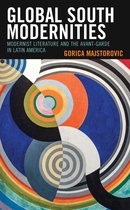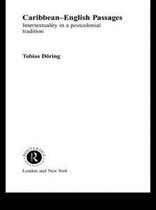Latin American Decolonial and Postcolonial Literature- Decolonizing Indigeneity New Approaches to Latin American Literature
Afbeeldingen
Sla de afbeeldingen overArtikel vergelijken
- Engels
- Paperback
- 9781498535205
- 15 september 2018
- 288 pagina's
Samenvatting
While contemporary scholars have taken a great interest in diversity or heterogeneity, this model is relatively new and literature of the past is still crying out for its place in the diversity model. This book models five different decolonizing methods to examine both indigenous writing and representations of indigenous peoples by learned elites.
While there are differences between cultures in different places and times, colonial representations of indigenous peoples generally suggest they are not capable of literature nor are they worthy of being represented as nations. Colonial representations of indigenous people continue on into the independence era and can still be detected in our time. The thesis of this book is that there are various ways to decolonize the representation of Amerindian peoples. Each chapter has its own decolonial thesis which it then resolves. Chapter 1 proves that there is coloniality in contemporary scholarship and argues that word choices can be improved to decolonize the way we describe the first Americans. Chapter 2 argues that literature in Latin American begins before 1492 and shows the long arc of Mayan expression, taking the Popol Wuj as a case study. Chapter 3 demonstrates how colonialist discourse is reinforced by a dualist rhetorical ploy of ignorance and arrogance in a Renaissance historical chronicle, Agustin de Zárate's Historia del descubrimiento y conquista del Perú. Chapter 4 shows how by inverting the Renaissance dualist configuration of civilization and barbarian, the Nahua (Aztecs) who were formerly considered barbarian can be "civilized" within Spanish norms. This is done by modeling the categories of civilization discussed at length by the Friar Bartolomé de las Casas as a template that can serve to evaluate Nahua civil society as encapsulated by the historiography of Fernando de Alva Ixtlilxochitl, a possibility that would have been available to Spaniards during that time. Chapter 5 maintains that the colonialities of the pre-Independence era survive, but that Criollo-indigenous dialogue is capable of excavating their roots to extirpate them. By comparing the discussions of the hacienda system by the Peruvian essayist Manuel González Prada and by the Mayan-Quiché eye-witness to history Rigoberta Menchú, this books shows that there is common ground between their viewpoints despite the different genres in which their work appears and despite the different countries and the eight decades that separated them, suggesting a universality to the problem of the hacienda which can be dissected. This book models five different decolonizing methods to extricate from the continuities of coloniality both indigenous writing and the representation of indigenous peoples by learned elites.
While there are differences between cultures in different places and times, colonial representations of indigenous peoples generally suggest they are not capable of literature nor are they worthy of being represented as nations. Colonial representations of indigenous people continue on into the independence era and can still be detected in our time. The thesis of this book is that there are various ways to decolonize the representation of Amerindian peoples. Each chapter has its own decolonial thesis which it then resolves. Chapter 1 proves that there is coloniality in contemporary scholarship and argues that word choices can be improved to decolonize the way we describe the first Americans. Chapter 2 argues that literature in Latin American begins before 1492 and shows the long arc of Mayan expression, taking the Popol Wuj as a case study. Chapter 3 demonstrates how colonialist discourse is reinforced by a dualist rhetorical ploy of ignorance and arrogance in a Renaissance historical chronicle, Agustin de Zárate's Historia del descubrimiento y conquista del Perú. Chapter 4 shows how by inverting the Renaissance dualist configuration of civilization and barbarian, the Nahua (Aztecs) who were formerly considered barbarian can be "civilized" within Spanish norms. This is done by modeling the categories of civilization discussed at length by the Friar Bartolomé de las Casas as a template that can serve to evaluate Nahua civil society as encapsulated by the historiography of Fernando de Alva Ixtlilxochitl, a possibility that would have been available to Spaniards during that time. Chapter 5 maintains that the colonialities of the pre-Independence era survive, but that Criollo-indigenous dialogue is capable of excavating their roots to extirpate them. By comparing the discussions of the hacienda system by the Peruvian essayist Manuel González Prada and by the Mayan-Quiché eye-witness to history Rigoberta Menchú, this books shows that there is common ground between their viewpoints despite the different genres in which their work appears and despite the different countries and the eight decades that separated them, suggesting a universality to the problem of the hacienda which can be dissected. This book models five different decolonizing methods to extricate from the continuities of coloniality both indigenous writing and the representation of indigenous peoples by learned elites.
Productspecificaties
Wij vonden geen specificaties voor jouw zoekopdracht '{SEARCH}'.
Inhoud
- Taal
- en
- Bindwijze
- Paperback
- Oorspronkelijke releasedatum
- 15 september 2018
- Aantal pagina's
- 288
- Illustraties
- Nee
Betrokkenen
- Hoofdauteur
- Thomas Ward
- Tweede Auteur
- Ward, Thomas (University Of East Anglia, Norwich, Uk)
- Hoofduitgeverij
- Lexington Books
Overige kenmerken
- Extra groot lettertype
- Nee
- Product breedte
- 150 mm
- Product hoogte
- 18 mm
- Product lengte
- 223 mm
- Studieboek
- Ja
- Verpakking breedte
- 150 mm
- Verpakking hoogte
- 18 mm
- Verpakking lengte
- 223 mm
- Verpakkingsgewicht
- 454 g
EAN
- EAN
- 9781498535205
Je vindt dit artikel in
- Categorieën
- Beschikbaarheid
- Leverbaar
- Taal
- Engels
- Boek, ebook of luisterboek?
- Boek
- Studieboek of algemeen
- Studieboeken
Kies gewenste uitvoering
Kies je bindwijze
(3)
Prijsinformatie en bestellen
De prijs van dit product is 42 euro en 99 cent.
3 - 4 weken
Verkoop door bol
- Prijs inclusief verzendkosten, verstuurd door bol
- Ophalen bij een bol afhaalpunt mogelijk
- 30 dagen bedenktijd en gratis retourneren
- Dag en nacht klantenservice
Rapporteer dit artikel
Je wilt melding doen van illegale inhoud over dit artikel:
- Ik wil melding doen als klant
- Ik wil melding doen als autoriteit of trusted flagger
- Ik wil melding doen als partner
- Ik wil melding doen als merkhouder
Geen klant, autoriteit, trusted flagger, merkhouder of partner? Gebruik dan onderstaande link om melding te doen.








